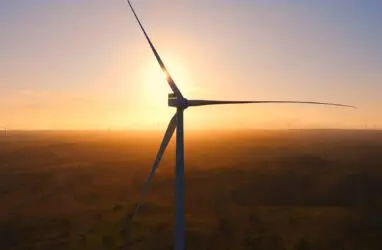
Australia’s Future Fund has been given new instructions to ensure that it does, in fact, invest in the future, as part of a new mandate issued by the federal Labor government to have the sovereign wealth fund focus on housing, infrastructure and the transition to a zero carbon economy. The new Investor Mandate and Statement of Expectations for the Future Fund were announced late on Wednesday night by Federal Treasurer Jim Chalmers and Finance Minister Katy Gallagher and works to direct new investment into key areas considered “national priorities”. The $224.
9 billion Future Fund began in 2006 under the Howard government as a project of then federal treasurer Peter Costello. It was seeded with $60.5b obtained from the federal surplus and the proceeds from the privatisation of Telstra.

By 2033, the Future Fund’s value is expected to grow to $380 billion. The majority of investments to date, at least in regards to energy, have been in fossil fuels but the new mandate could tip significant capital into Australia’s shift to renewables and an exporter of green technology and products. Costello, who recently resigned as chairman of Nine Entertainment and formerly served as Chairman of the Board of Guardian’s of the Australian Future Fund, had previously objected to instructions being given to the Future Fund over fears it may “politicise” its decisions.
The current chair of the Board of Guardian’s, former Labor MP Greg Combet, welcomed the announcement by the government that it would not drawdown the fund until “at least” 2032-33 and commitments by the government to the institution’s independence. “The Future Fund is continuing to assess opportunities to invest in businesses that will play a vital role in the energy transition,” Combet said. To help achieve these goals, Combet said the fund will appoint an executive director looking at the energy transition who will be “developing strategies in our investment process” to facilitate this particular focus.
“We have also long recognised the importance of environmental, social and governance issues in our investment process and will add resources in this area.” Though it maintains investments in company’s such as , a company responsible for nine operational wind and solar farms with several new wind, solar and battery storage projects in development, the Future Fund also holds significant investment in fossil fuel and petrochemical companies. According to the latest , the Future Fund’s holdings include significant investments in oil and gas companies, as well as other fossil fuel producers.
These include $593 million in shares with Woodside Energy, $261 million in shares with Santos, $138 million shares in ExxonMobil, $77 million in shares with Chevron, $71 million in shares with BP, $63.7 million in shares with Shell PLC, $10.37 million with Imperial Oil and $7.
99 million in Beach Energy. Other share holdings include a $26 million stake in coal miner Glencore, $7.7 million in Adani Green Energy, and $9.
9 million in shares with Western Mining Company. Many of these companies are seeking to expand fossil fuel production. The federal Opposition vowed to reverse the mandate.
This is absolutely the wrong direction for the Future Fund,” Coalition treasury spokesman Angus Taylor told reporters. “We will oppose this change and, if elected to government, we will overturn what the Labor party is seeking to do here.” In 2023, the Australian government committed at COP28 in Dubai to transition “away from fossil fuels in energy systems in a just, orderly and equitable manner, accelerating action in this critical decade, so as to achieve net zero by 2050 in keeping with the science”.
A 2022 study in the scientific journal that, globally, there was over $US1 trillion of fossil fuel extraction at risk of becoming stranded assets as the world shuttered oil, gas and coal production. The government says the changes mean the Future Fund will support the government’s national priorities “where it can” and will work alongside the specialist investments made by the Clean Energy Finance Corporation..














